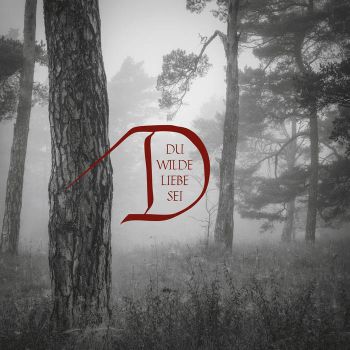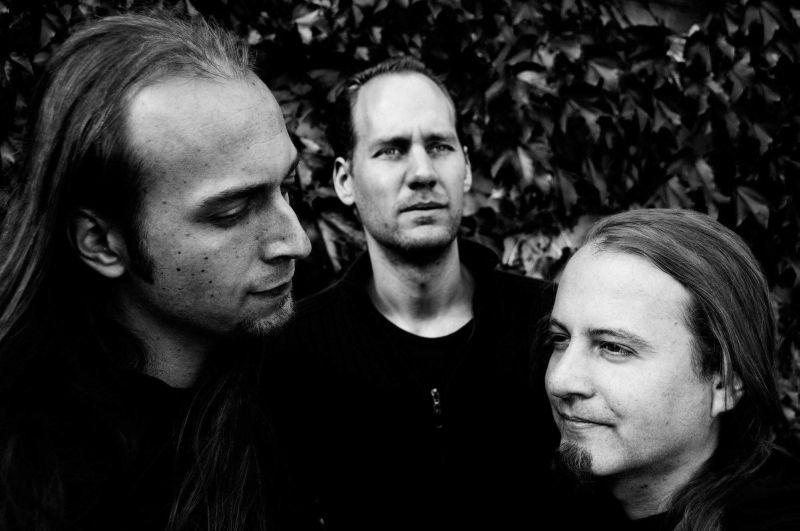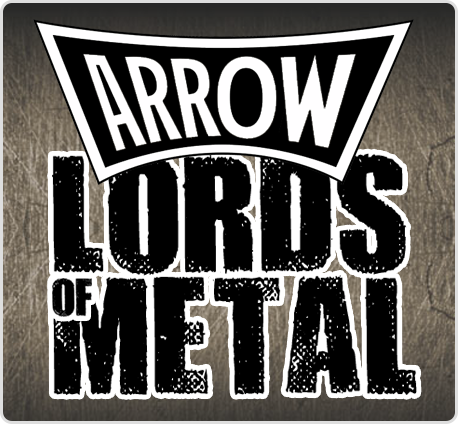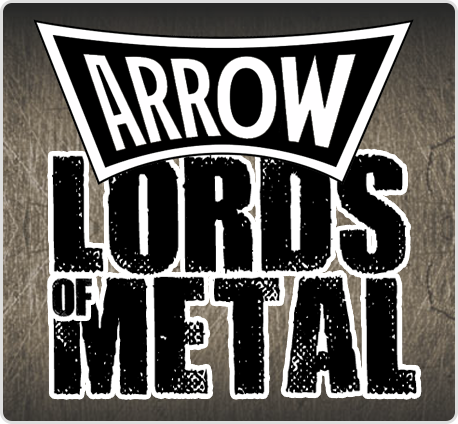
Eviga: “My starting point this time was some kind of irritation as I truly perceive it to be strange that all of us seem to talk about loving this and that day by day and want to be courageous and free whereas hardly anybody seems to really know the actual meaning of courage, freedom or love.”
De aangekondigde pauze na de release van Dornenreich’s vorige album ‘Freiheit’ (2014) heeft zich uitgebreid tot zeven magere jaren zonder een streepje nieuwe muziek van dit Oostenrijkse trio onder leiding van Eviga. Daar is nu gelukkig verandering in gekomen met de komst van ‘Du Wilde Liebe Sei’. Het spreekt voor zich dat we de heren hartelijk verwelkomen en met Eviga praatten over wat er de voorbije jaren allemaal gebeurde en hoe dit resulteerde in een nieuw elan om intense muziek te creëren.
Vera Matthijssens Ι 19 juni 2021
Hello Jochen, I am glad that the new Dornenreich album is finally finished! How are you doing? I guess for you it will be a relief that it is finally out as well?
Yes, it is a big, big relief without any doubt. We have worked on this album for many years and we had to have a lot of patience and had to keep up our endurance.
Seven years passed by after ‘Freiheit’, but we were warned J since you announced ‘Freiheit’ at that time as the last Dornenreich album for a long time. Why did you need that break?
You are right: you were ‘warned’ back in 2014 (laughs), however, it was quite surprising to me that it really took that many years to reveal this ninth album eventually. In the first place back in 2014 I felt that it would be wise to take one step back consciously and to communicate that, too. After eighteen years, eight albums and countless concerts and tours I deeply felt an urge to examine and realign my artistic approach. I wanted to gather at the original source of my creativity and motivation to express. And I wanted to do so in all consciousness and in all silence (apart from some further concerts and tours that we played in the course of the last years).
Well, seven years is a long time, so what did you do with the spare time that was coming after the work for the ‘Freiheit’ release was done? Did you travel or did you take a rest or did you explore other hobbies than music?
You are right again. Seven years are quite a long time span, some spiritual traditions would even speak of a whole phase of life (laughs). Well, after our release tour we had played for ‘Freiheit’ in May 2014 I had to set the direction for some professional tracks in addition to the music as I also work as an academic librarian at the university in part time. I did all that to create a solid fundament for further artistic adventures and projects, too. So, the break from studio work was a conscious decision we made in favour of Dornenreich and artistic expression in general in the end, even if that meant that we had to reframe and refocus certain areas and aspects of our lives primarily. During this first phase after the ‘Freiheit’ tour I watched and observed narrowly how my love for artistic expression would appear anew in the light of the pause that we had communicated publicly. And I did not have to wait long as new ideas just came into existence in 2015 already as naturally and intuitively as it has always been in my/our case whenever I – I would actually put it that way – dream actively on my guitar. And it was a very important experience for me to perceive in all clarity how interwoven my personal life and my urge to express existential thoughts and feelings are.
But you did not say goodbye to the music scene completely during that break I think, because you were active as live session guitarist for Empyrium and Sun Of The Sleepless (and maybe more?). Can you tell something more about that involvement?
Yes, I also played and toured with Empyrium and Sun Of The Sleepless during these last years and I even wrote lyrics and recorded guest vocals for an Agrypnie song. With Sun Of The Sleepless I started to play live in 2017 as Markus offered me to join the band as live guitarist, which wasn’t that surprising to anybody I guess as we are like-minded friends that had experienced a lot together as I used to be the live guitarist for Empyrium since 2011 whereas Markus, in turn, has been Dornenreich’s main producer and sound engineer for the last twenty years. In particular all these live adventures kept me in touch with all the people out there and with all my creative mates and companions during these last seven years and that’s what I appreciate, especially when it comes to concerts and tours – as these experiences tend to weld together as the years go by and many other things change ceaselessly in all our lives.
And Dornenreich would keep on playing special gigs. Did that happen during those seven years?
Yes, we played numerous concerts since 2014 – and even another tour to celebrate the band’s twentieth anniversary back in 2016 and that’s also what I communicated in 2014. We have never intended to stop the band and we assumed that live experiences with all the camaraderie involved would be something that would strengthen the band as whole during these years of realignment and change. And that’s how it turned out.
When did you actually start thinking and writing for the new album ‘Du Wilde Liebe Sei’? Was there a click when you suddenly felt the urge or did it smoothly and slowly start again? And what about the recording process?
It came to me by and by as I grabbed the guitar more frequently since 2015. Moreover, we intended to do justice to the fact that we had established our own home studios over the years which enable us to work on new songs whenever mood, magic of a moment or simple focus urged us to do so. Therefor we could really aim at the best takes and atmospheres when it comes to our mind-set and our performance on the one hand, but we really had to prove a long wind on the other hand because as we integrated the recordings into our personal lives and home settings we could not record for weeks in a row. However, some deliberate phases of distance we wanted the entire process to rely on anyway – especially concerning the final arrangements and instrumentation of the songs. So, more and more songs were elaborated between 2015 and 2018. Then, 2018, we headed out in order to play some of our very special ‘Mystic Places’ acoustic concerts. Within the frame of these shows we played song 4, 5 and 6 of the album that used to be ready instrumentally back then and as an effect of this experience the songs developed even further regarding tempo and structure in particular. It worked very inspiring upon us to experience this new music in progress while being on stage. The actual recordings were done between early 2019 and June 2020 and consequently the songs and its final shapes evolved over the whole course of these eighteen months of recording.
But – as I found out – originally the album was supposed to come out in 2020. What caused this delay? (probably covid-19?)
Yes, it was due to the pandemic and due to the fact that we really felt that the initial perception of the album would benefit from a release during spring or summer. Because of the pandemic we had to postpone the mixing and mastering of the album from April to August 2020. Actually, in April we all had to live through the first lockdowns and Markus’ studio is located in Germany. So there was no possibility to leave one’s country at that specific time. But, finally, in August we seized the opportunity and finished the album together with Markus by mixing and mastering it in his ‘Klangschmiede Studio E’.

The overall theme of the album is love in all its facets. Can you go a bit deeper into that and maybe illustrate it with some of the songs? How did you approach the concept ‘love’?
As I have always dealt with existential and often abstract themes lyrically – such as transitoriness, fear, courage and, lately, freedom (= ‘Freiheit’ in German) – it felt natural to deeply dive into the vast fields of ‘love’ by means of a conceptual album that tries to approach this topic and all assumptions, manners of appearance, its facets, aspects as well as the massive misunderstandings surrounding it that often result in emotional or even physical cruelty and pain. Thus, there is a lot of pain and darkness and there are even moments of despair on this album, too, that are audible as intense dramatic suspense.
My starting point this time was some kind of irritation as I truly perceive it to be strange that all of us seem to talk about loving this and that day by day and want to be courageous and free whereas hardly anybody seems to really know the actual meaning of courage, freedom or love.
The album is ambitious and has to offer numerous keys but for now, within the scope of this interview, it would lead too far to point out the aspects of each and every song, but I would like to emphasize that especially the tension within the human individual’s heart between the desire for self-assertion and freedom and the desire to devotion and belonging to me is the central conflict this album relies on. In psychology one can find the term ‘lack (of) love’ which hints on the behaviour and condition of an individual that is needy without any actual self-awareness or self-acceptance. So, on a deeper level some of the songs also deal with love as some central sort of self care and existential as well as conscious connection, with love as some kind of quality of life, of existence that understands love as inexhaustible source within the individual.
Music-wise you continued the approach of ‘Freiheit’, but the percussion is something special! How did you grow into that segment of your music?
You put it right when calling it ‘growing into it’ because I have experimented with different types of organic percussion for many years. Actually, I started to record first sketches with this percussion combined with a metallic overall setting in 2002 already. So, this new and unique sound of Dornenreich has come a long way, doubtlessly, and after ‘Freiheit’, which had offered many of our former core elements that we had developed over the years, we wanted to build something new upon that fundament and we wanted to discover our artistic expression and its sonic possibilities anew, too. The combination of a deeply organic, powerful and maybe even hypnotic and shamanic-seeming braiding of percussion and prominent bass guitar with – in a way – sculptural, palpable and permeable electric guitar and layers of yearning and epic violins, acoustic guitars and voices to us seemed apt in order to see something comprising and thrilling take shape that one has hardly ever heard or – let’s say – experienced before.
Although the album happens to be an intense listening experience, one can find no black metal influences anymore. Was this done on purpose? Do you think it has had its time in the evolution of Dornenreich?
This new sound is a result of detailed vision, intention and execution, yes. As I experience the album personally the whole overall sound and its sonic aesthetics and atmospheres rest on black metal still and there are quite dramatic screams in most of the songs, too. And as I see and perceive things (black) metal has always been characterized by an intense, unpredictable and rebellious charm as well as by a profound emotional strength – and one can find all that on our new album, I would dare to state. However, Dornenreich is heart- and handmade expression that is not afraid to bust genre- boundaries on its way to intense expression.
But trusty producer Markus Stock did the mix and mastering as usual. I see he even served you with a beautiful photo of nature for the artwork. Can you tell about this close cooperation during the years?
Yes, he did. We have worked with Markus since 2000 and in the course of the years we became friends and when one listens to the new album it gets obvious quite quickly that there is a lot of mutual understanding, shared aesthetics and a lot of trust and dedication involved which is the result of a grown friendship. As we are friends I also took notice of his talent and ambition as a photographer who captures atmospheres in nature masterfully at quite an early stage and so we intended to cooperate with him on one more level apart from the music itself.
At a certain point in time I see that you renewed your contract with Prophecy Productions. Yes, great! A few words about this next step would be nice…
Similar to our loyalty when it comes to the studio we also wanted to express our appreciation for the artistic freedom that we enjoy as one of Prophecy’s most distinctive bands – and therefore we prolonged the contract with this label eventually.
One by one the songs are now revealed to the world in the format of video clips. Can you tell a bit more about the plans for visual support by creating video clips?
In fact, there is only one special lyric video for the third single and we don’t intend to do further or even actual (story-driven) video clips any time soon; for we hardly ever like video clips ourselves and all too often consider the results to be distractive or even harmful due to – for instance – questionable production value. Personally, I have great respect for individual imagination – especially when it comes to our own expression that tends to be rich in gestures, pictoriality and emotion. What I really like are charismatic live recordings or performance-intense clips and therefore our first lyric video of late features an intense and intimate performance of the song’s lyrics.
What are the prospects at the moment for planning gigs and bring the new songs on stage?
In all probability this year will see us perform at the Prophecy Fest in Balve exclusively. But we have ambitious and special plans for our return to more stages next year as one can imagine…
If there is anything you’d like to add, please feel free to do it here…
If you want to discover something deep, intense and varied that unveils a unique atmosphere and sound too, give our new album a listen.




